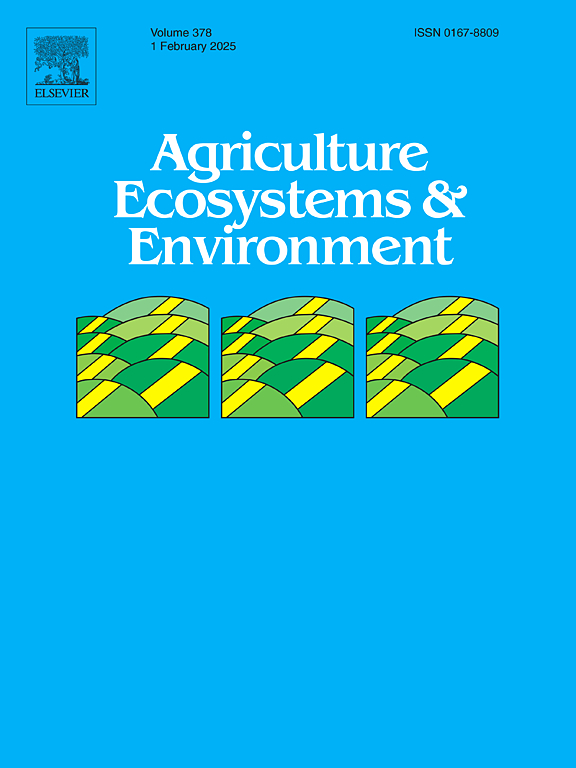Priming the decomposition of cover crop residues in no-till organic cropping systems
IF 6
1区 农林科学
Q1 AGRICULTURE, MULTIDISCIPLINARY
引用次数: 0
Abstract
Effective cover crop termination by roller crimping remains a challenge in organic no-till systems. Slow decomposition of surface residues can delay planting and lead to competition for soil resources. Little research has investigated the potential for application of microbial inoculants to promote residue decomposition and accelerate C and N cycling. Two field studies were conducted to evaluate the effects of microbial inoculants on cover crop residue decomposition, labile soil carbon (POXC) and inorganic N pools, and sweet potato yield under contrasting environmental conditions. In a fall termination study, vermicompost tea, a microbial inoculant (EM-1), and thermophilic compost tea were applied after roller crimping sorghum-sudangrass. In a spring termination study, vermicompost tea, EM-1, and a treatment with tillage were applied after roller crimping a multispecies cover crop mixture. Results indicate there was no effect of the microbial tea treatments on the rate of residue decomposition or soil inorganic N and POXC concentrations in either study. However, soil ammonium-N and nitrate-N concentrations were significantly higher in the tilled vs. roller crimped treatments in the spring termination study. Moreover, POXC increased significantly over time in the fall termination study but decreased in the spring termination study. There were no differences in sweet potato yield among microbial inoculants or between the roller crimped and tilled treatments. These results provide insights into the limitations of promoting cover crop decomposition following roller crimping in organic no-till systems to enhance labile C and inorganic N pools while improving yield of the succeeding cash crop.
求助全文
约1分钟内获得全文
求助全文
来源期刊

Agriculture, Ecosystems & Environment
环境科学-环境科学
CiteScore
11.70
自引率
9.10%
发文量
392
审稿时长
26 days
期刊介绍:
Agriculture, Ecosystems and Environment publishes scientific articles dealing with the interface between agroecosystems and the natural environment, specifically how agriculture influences the environment and how changes in that environment impact agroecosystems. Preference is given to papers from experimental and observational research at the field, system or landscape level, from studies that enhance our understanding of processes using data-based biophysical modelling, and papers that bridge scientific disciplines and integrate knowledge. All papers should be placed in an international or wide comparative context.
 求助内容:
求助内容: 应助结果提醒方式:
应助结果提醒方式:


